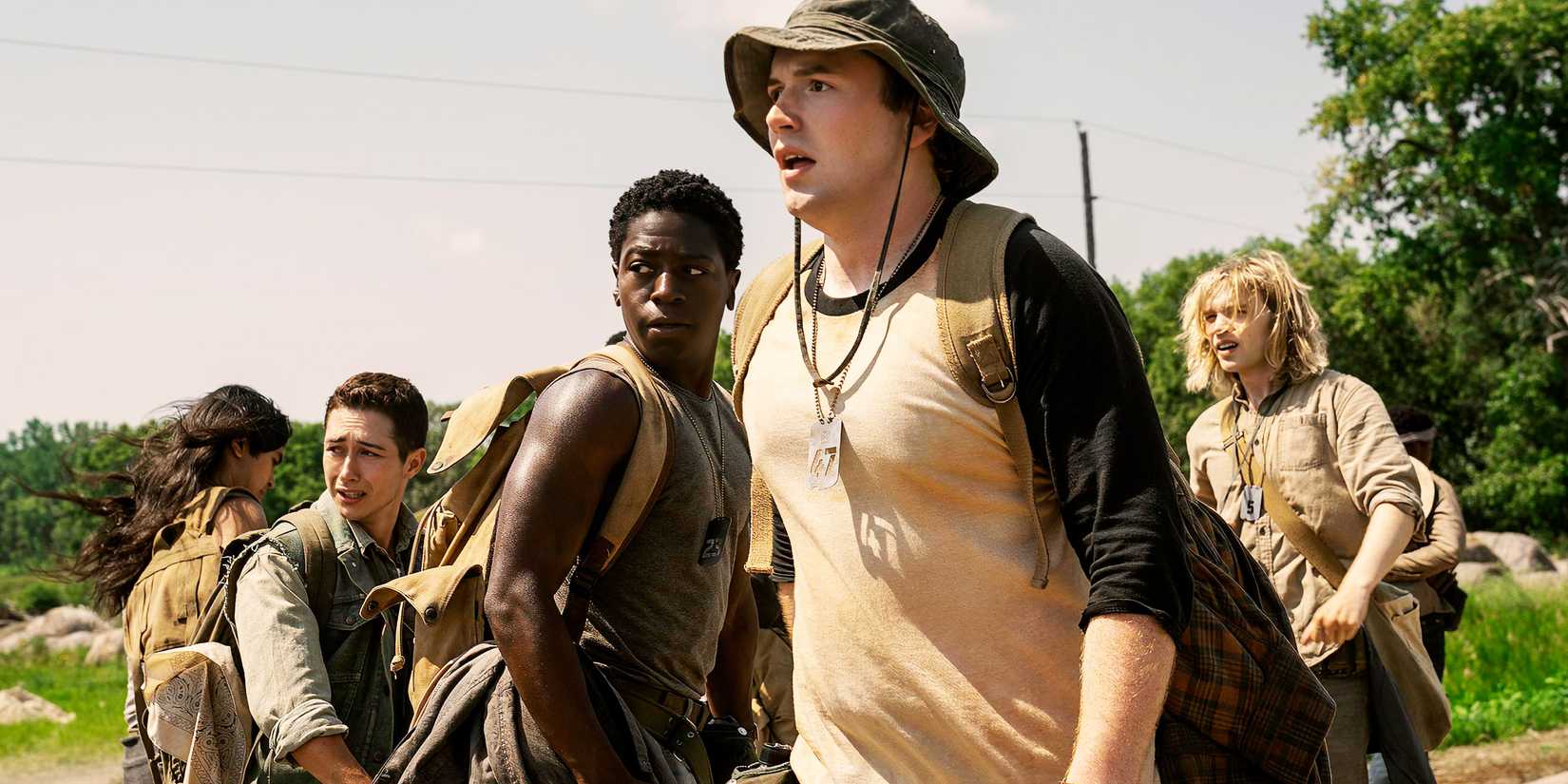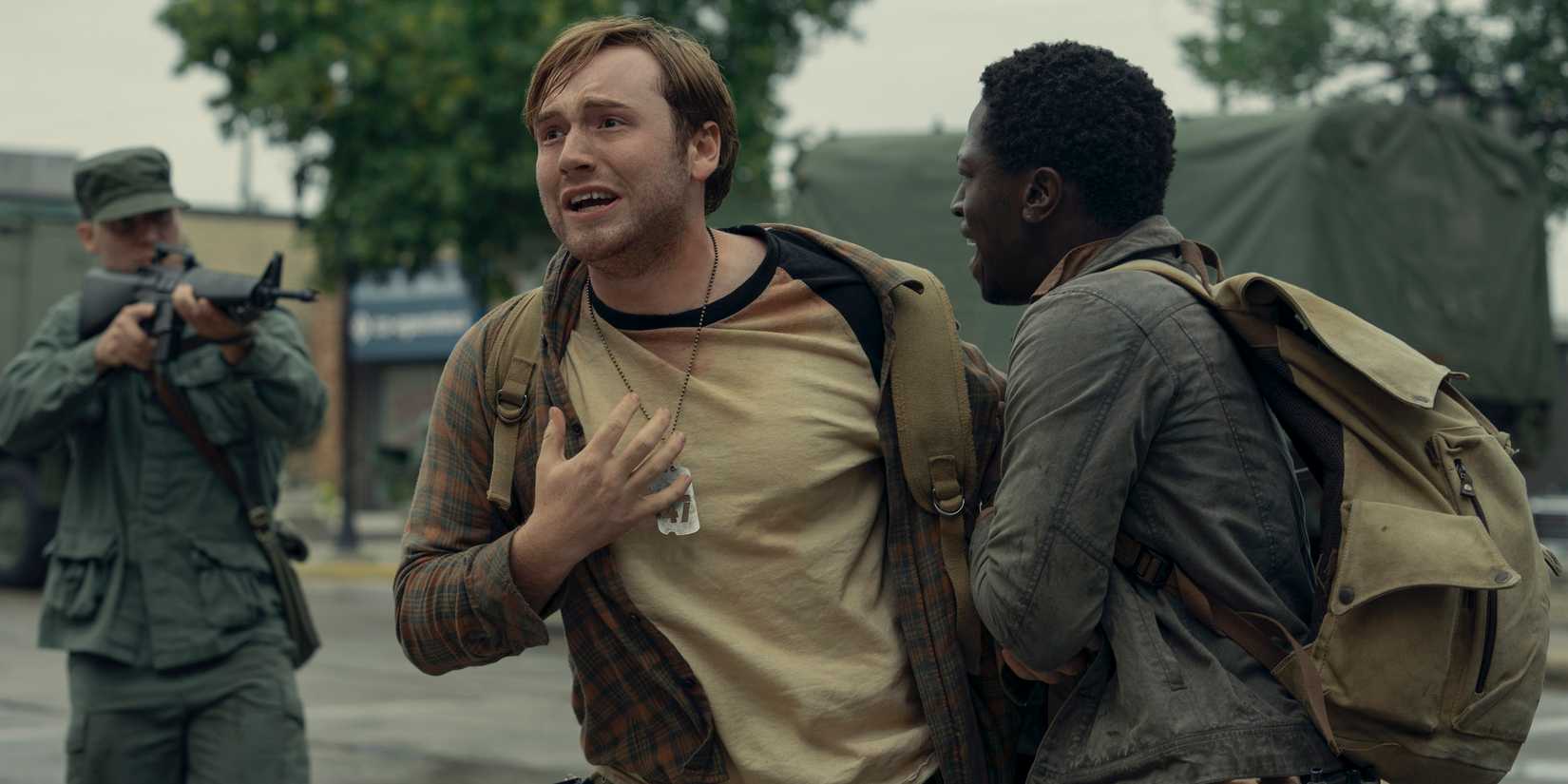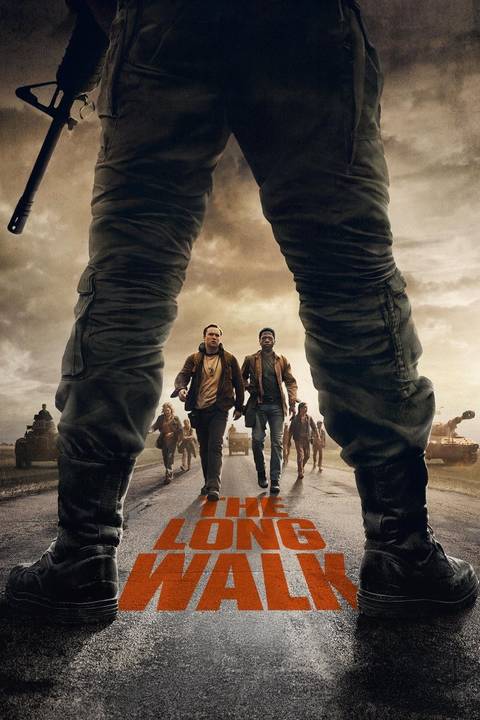Francis Lawrence’s gut-wrenching thriller The Long Walk earned outstanding reviews from critics and audiences alike, and there’s one key reason why it’s the best cinematic adaptation of a Stephen King story in nearly 30 years. Starring Cooper Hoffman and David Jonsson in star-making turns, The Long Walk chronicles a grueling contest to the death set in a dystopian version of America.
The Long Walk is remarkably simple in concept, as it follows a group of 50 young men who walk until they physically can’t anymore, with the last man standing winning unfathomable riches and an all-encompassing wish. However, from that simple setup, a remarkable amount of human drama unfolds, as the Walkers contend with their opponents along with their own willpower.
While it’s far from the only non-horror Stephen King adaptation to come out in the last few years (it isn’t even the only such movie to come out this summer), The Long Walk stands above those from recent memory. In fact, I feel confident in declaring it the best Stephen King adaptation of the 21st century because of one key element.
The Long Walk Is The Most Emotionally Affecting King Adaptation Since The Green Mile
The Long Walk interestingly mirrors the characters’ experience for its audience over the course of its runtime. Just as characters learn more about each other and develop alliances and friendships, the audience becomes more familiar with specific characters and develops carefully-curated affinities for them.
That makes each of their deaths all the more difficult to stomach as you watch the Long Walk unfold. The end result is a cinematic meal that offers the warmth of friendship and courage on the same plate as the desolation of grief, loss, and trauma. The Long Walk is the best King adaptation of the last three decades because it’s by far the most emotionally affecting.
As the audience, we establish relationships with the “Musketeers” on the Long Walk, namely Ray, Pete, Art, and Hank. They are some of the longest-lasting Walkers, and through them we experience fear, anger, and grief as their comrades are killed and the reality of the Long Walk sets in.
Each grisly death in the movie is impactful, but when we finally lose one of the Musketeers we’ve undergone enough emotional trauma that it acts as a gut-punch. Hank’s exhaustion and delirium leads him to attack the soldiers, who shoot him in the stomach and allow him to bleed out as a warning to others. The gruesome nature of his death is the first painful emotional benchmark for the audience.
|
The Long Walk – Key Review Scores |
|||||
|---|---|---|---|---|---|
|
RT Tomatometer |
RT Popcornmeter |
Metacritic Metascore |
Metacritic User Score |
IMDB Score |
Letterboxd Score |
|
89% |
85% |
71/100 |
6.6/10 |
7.4/10 |
3.7/5.0 |
The next major moment comes when Art meets his end. Understanding that he’s suffering from an internal hemorrhage (perhaps not that exact diagnosis, but he knows he’s dying), Art thanks his friends Ray and Pete for their friendship before welcoming his end with a mixture of fear and acceptance. By this point, we as the audience are meant to be completely broken from all the loss, just as Ray and Pete are.
The final showdown between Ray and Pete rewards those who have appreciated the juxtaposition of life and friendship with loneliness and death, as both boys try to sacrifice their own lives for their friend. It’s simultaneously heartbreaking and heartwarming, acting as a microcosm of everything we’ve watched up to that point.
The movie’s finale offers one last emotional punch, with Pete’s triumphant murder of the villainous Major providing some measure of redemption and satisfaction. No matter how you felt about the movie coming in, you can’t possibly dial into the narrative and leave it unaffected in some meaningful way, which is what makes it such a powerful and legitiamtely great movie.
Why Stephen King’s Dramas Make For Better Movie Adaptations Than His Horror
The mere mention of Stephen King’s name conjures horror in the mind, and a great many of his most beloved works are undoubtedly horror-centric. All-timers like It, Carrie, Misery, and The Shining are undoubtedly excellent movies based on terrific books, but some of the very best movies based on Stephen King stories are dramas, not outright horror movies.
Three of the top seven Stephen King movie adaptations as ranked by Rotten Tomatoes score are dramas, including The Long Walk. While Brian De Palma’s classic Carrie sits atop the list, just behind it is Stand By Me, the coming-of-age drama starring Wil Wheaton and River Phoenix. Just below that is The Shawshank Redemption, which is regarded by many as one of the greatest movies of all time.
While there are plenty of factors, one of the most important reasons why King’s dramas make for elite movie adaptations is because they are almost entirely dependent on King’s narrative. Horror movies are largely dependent on the work of the director to visually, viscerally create terror on the screen, which is extremely difficult to do, especially when you’re working with existing source material.
In horror movies, the monster is typically the star, and the movie’s quality is often predicated on whether the monster is executed well. For example, both Tim Curry and Bill Skarsgård’s performances as Pennywise the Clown are why both interpretations of It are highly regarded, as is the case with Frank Darabont’s extra-dimensional monstrosities from The Mist.
In the more dramatic stories, King’s writing and characters get more of a chance to shine without relying on a director, creative designer, or cinematographer to capture his vision. The Long Walk is a perfect example of why that works so well: King’s streamlined story combined with deep characters powered by exceptional performances make it an all-time dramatic thriller.








